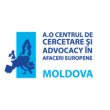Anunțuri de Angajare
- Detalii
- Categorie: Angajări
Public Institution “Environmental Projects National Implementation Office” announces a vacancy National Consultants in Climate Change Vulnerability and Adaptation
Informațiile prezentate în articolul de mai jos pot să nu mai fie actuale sau să nu mai reflecte activitățile și programele curente. Anunțul este păstrat în arhivă pentru a asigura transparența și accesul public la informațiile despre inițiativele și proiectele implementate anterior.
|
PUBLIC INSTITUTION “ENVIRONMENTAL PROJECTS NATIONAL IMPLEMENTATION OFFICE”, PROJECT MANAGEMENT UNIT OF THE FIRST BIENNIAL TRANSPARENCY REPORT VACANCY ANNOUNCEMENT |
||
|
I. Positions Information |
||
|
Project Title:
Job Titles (part-time):
Duration of employment:
Indicative workload: |
Republic of Moldova: Preparation of First Biennial Transparency Report to the United National Framework Convention on Climate Change
National Consultants in Climate Change Vulnerability and Adaptation, including: I: National consultants, with responsibilities for compiling and reporting information on ‘National circumstances, institutional arrangements and legal frameworks for implementation of climate change adaptation actions on sectoral levels (i.e., national consultants positions agriculture, forestry, water resources, energy, transport, human health sectors); information on the establishment or use of domestic systems to monitor and evaluate the implementation of adaptation actions, inclusive on sectorial level, information related to the effectiveness and sustainability of adaptation actions, inclusive on sectorial level’;
II: National consultant(s), with responsibilities for compiling and reporting information on ‘Loss and damage associated with climate change impacts, inclusive on sectorial level, taking into account projected changes in climate-related risks, vulnerabilities, adaptive capacities and exposure, inclusive by considering their socio-economical assessment on national and district level’;
III: National consultant(s), with responsibilities for compiling and reporting information on “Cooperation, efforts to share information, good practices, experience and lessons learned, including as they relate to: science, planning and policies relevant to adaptation; policy innovation and pilot and demonstration projects; integration of adaptation actions into planning at different levels; cooperation to share information and to strengthen science, institutions and adaptation; area, scale and types of cooperation and good practices; improving durability and effectiveness of adaptation actions; helping developing countries to identify effective adaptation practices, needs, priorities, and challenges and gaps in a way that is consistent with encouraging good practices; strengthening scientific research and knowledge related to: climate, including research and systematic observation and early warning systems, to inform climate services and decision-making; vulnerability and adaptation; and monitoring and evaluation’.
October 2023 – May 2024
Up to 8 working/days per month |
|
|
II. Background |
||
|
The project aims to prepare and submit the First Biennial Transparency Report (BTR1) of the Republic of Moldova to the UNFCCC. The project will also contribute to strengthening capacities and improving the institutional arrangements and framework to allow for continuous and sustainable reporting. The BTR1 project is prepared in line with the GEF-7 climate change mitigation objective CCM-3: Foster Enabling Conditions to Mainstream Mitigation Concerns into Sustainable Development Strategies. The project will have one outcome which is the Republic of Moldova updates tools and approaches to meet its BTR1 reporting requirements under the Paris Agreement. The two expected outputs under this outcome are as following: Output 1: BTR1 for the Republic of Moldova prepared and submitted to UNFCCC, by 31 December 2024. Output 2: A self-assessment and stocktaking exercise for preparation of subsequent BTR completed. Under the first output, the project will support the Republic of Moldova to prepare and submit its BTR1 to the UNFCCC. The preparation of BTR1 will be in line with the modalities, procedures and guidelines for the transparency framework for action and support contained in the annex to Decision 18/CMA.1 and Annexes I to V of Decision -/CMA3. The BTR1 project will build on findings and recommendations from previous NCs and BURs as well as recommendations resulting from the International Consultation and Analysis (ICA) process. Activities to be undertaken under the first output will result in the preparation of the following chapters of the BTR1: I. National inventory report of anthropogenic emissions by sources and removals by sinks of greenhouse gases; II. Information necessary to track progress made in implementing and achieving nationally determined contributions under Article 4 of the Paris Agreement; III. Information related to climate change impacts and adaptation under Article 7 of the Paris Agreement; IV. Information on financial, technology development and transfer and capacity-building support needed and received under Articles 9–11 of the Paris Agreement; V. Other relevant information (e.g., gender and climate change). |
||
|
III. Organizational Context |
||
|
The project is executed by the BTR1 Project Management Unit (PMU) established by the Public Institution “Environmental Projects National Implementation Office” (P.I. “EPNIO”) of the Ministry of Environment (MoEN), on behalf of the Government of the Republic of Moldova, and in consultation with the UNEP. As national executing agency, the PMU established by the P.I. “EPNIO” is primarily responsible for the planning and management of the project activities, accounting, reporting, monitoring and evaluation of the project. Under the guidance and direct supervision of the National Project Manager (NPM), as well as of the Vulnerability Assessment, Climate Change Impacts and Adaptation Measures Thematic Working Group Coordinator, the incumbents will provide technical knowhow for developing: · Chapter 3: ‘Information related to climate change impacts and adaptation under Article 7 of the Paris Agreement’ of the BTR1 of the Republic of Moldova under the UNFCCC. Relevant project activities that will involve the services of the national consultants are as following: I. Document and describe information on national circumstances relevant to adaptation actions (including bio geophysical characteristics, demographics, economy, infrastructure and information on adaptive capacity), information on institutional arrangements and governance (including for assessing impacts, addressing climate change at the sectoral level, decision-making, planning, coordination, addressing cross-cutting issues, adjusting priorities and activities, consultation, participation, implementation, data governance, monitoring and evaluation, and reporting), as well as on the legal and policy frameworks and regulations. II. Compile and draft Section 3.1: ‘National circumstances, institutional arrangements and legal frameworks for climate change impacts and adaptation’ of the BTR1 of the RoM to the UNFCCC. III. Document and describe information on current and projected climate trends and hazards, observed and potential impacts of climate change, including sectoral, economic, social and/or environmental vulnerabilities, respectively information on approaches, methodologies and tools, and associated uncertainties and challenges, in relation to projected climate trends and hazards, potential impacts of climate change and vulnerabilities. IV. Compile and draft Section 3.2: ‘Impacts, risks and vulnerabilities’ of the BTR1 of the RoM to the UNFCCC. V. Collect and provide information on domestic priorities and progress towards adaptation priorities, adaptation challenges and gaps, and barriers to adaptation. VI. Document and provide information on: implementation of adaptation actions in accordance with the global goal on adaptation as set out in Article 7, paragraph 1, of the Paris Agreement; adaptation goals, actions, objectives, undertakings, efforts, plans (e.g., national adaptation plans and subnational plans), strategies, policies, priorities (e.g., priority sectors, priority regions or integrated plans for water and agriculture), programmes and efforts to build resilience; how best available science, gender perspectives and traditional and local knowledge are integrated into adaptation; development priorities related to climate change adaptation and impacts; any adaptation actions leading to mitigation co-benefits; efforts to integrate climate change into development efforts, plans, policies and programming, including related capacity-building activities; nature-based solutions to climate change adaptation; and stakeholder involvement, including subnational, community-level and private sector plans, priorities, actions and programmes. VII. Document and provide information on the establishment or use of domestic systems to monitor and evaluate the implementation of adaptation actions, inclusive by reporting on approaches and systems for monitoring and evaluation, including those in place or under development; inclusive the following information related to monitoring and evaluation: achievements, impacts, resilience, review, effectiveness and results; approaches and systems used, and their outputs; assessment of and indicators for: how adaptation increased resilience and reduced impacts; when adaptation is not sufficient to avert impacts; how effective implemented adaptation measures are; implementation on: transparency of planning and implementation; how support programmes meet specific vulnerabilities and adaptation needs; how adaptation actions influence other development goals; and good practices, experience and lessons learned from policy and regulatory changes, actions and coordination mechanisms. VIII. Collect and provide information related to the effectiveness and sustainability of adaptation actions, as appropriate, including on: ownership, stakeholder engagement, alignment of adaptation actions with national and subnational policies, and replicability; the results of adaptation actions and the sustainability of those results. IX. Compile and draft Section 3.3: ‘Climate Change Adaptation’ of the BTR1 of the RoM to the UNFCCC. X. Document and provide information related to enhancing understanding, action and support, on a cooperative and facilitative basis, to avert, minimize and address loss and damage associated with climate change impacts, taking into account projected changes in climate-related risks, vulnerabilities, adaptive capacities and exposure, including, as appropriate, on: observed and potential climate change impacts, including those related to extreme weather events and slow onset events, drawing upon the best available science; activities related to averting, minimizing and addressing loss and damage associated with the adverse effects of climate change; and institutional arrangements to facilitate the implementation of the referred activities. XI. Compile and draft Section 3.4: ‘Loss and damage associated with climate change impacts’ of the BTR1 of the RoM to the UNFCCC. XII. Document and describe the following information, as appropriate, related to cooperation, good practices, experience and lessons learned: efforts to share information, good practices, experience and lessons learned, including as they relate to: science, planning and policies relevant to adaptation; policy innovation and pilot and demonstration projects; integration of adaptation actions into planning at different levels; cooperation to share information and to strengthen science, institutions and adaptation; area, scale and types of cooperation and good practices; improving durability and effectiveness of adaptation actions; helping developing countries to identify effective adaptation practices, needs, priorities, and challenges and gaps in a way that is consistent with encouraging good practices; strengthening scientific research and knowledge related to: climate, including research and systematic observation and early warning systems, to inform climate services and decision-making; vulnerability and adaptation; and monitoring and evaluation. XIII. Compile and draft Section 3.5: ‘Cooperation, good practices, experience and lessons learned’ of the BTR1 of the RoM to the UNFCCC. XIV. Compile and draft Chapter 3: ‘Information related to climate change impacts and adaptation under Article 7 of the Paris Agreement’ of the BTR1 of the RoM to the UNFCCC. |
||
|
IV. Results Expected |
||
|
Key Tasks: · To perform above-mentioned activities under supervising of the Vulnerability Assessment, Climate Change Impacts and Adaptation Measures Thematic Working Group Coordinator and report in all aspects of program implementation; · To carry out all necessary studies, assessments and implement the above-mentioned activities according to the project document, and as outlined in the personal TOR; · To provide in electronic format required materials and information to the Vulnerability Assessment, Climate Change Impacts and Adaptation Measures Thematic Working Group Coordinator according to the personal TOR; · To contribute to training activities organized during project development; · To participate with a presentation in the national workshop, to present the sectorial results of the vulnerability assessments, climate change impacts and adaptation measures in the Republic of Moldova; · To contribute proactively in the preparation of the final reports on completion of climate change risk assessments, development of vulnerability indices for most probable climate risks and extremes, in depth impact assessments undertaken and adaptation measures identified the at the national, sectoral, and district level. Key Deliverables: · Chapter 3: ‘Information related to climate change impacts and adaptation under Article 7 of the Paris Agreement’ of the BTR1 of the Republic of Moldova under the UNFCCC; · Contribution to the developing pf the List of Acronyms, Abbreviations and Units, Executive Summary and Bibliography of the BTR1 of the RoM to the UNFCCC. |
||
|
V. Recruitment Qualifications |
||
|
Education: |
Advanced University Degrees (MSc or equivalent) in relevant fields, such as energy, agriculture, forestry, biology, geography, climatology, hydrology, physics, economics, human health, information technologies or other fields relevant to the project. Additional training and certification in project activity would be an advantage. |
|
|
Experience: |
· Professional working experience in technical activities related to climate change analysis and assessing climate change risks, impacts and adaptation measures on national, sectorial and district levels; · Demonstrated experience in projects with similar tasks (e.g., elaboration of national communications, nationally determined contributions of the RoM to the Paris Agreement); · Professional working experience in analysis and use of data sets using various statistical tools and instruments demonstrated by previous assignments; · Strong analytical and report writing skills demonstrated by previous assignments; · Strong communication and teamwork skills demonstrated by previous assignments. |
|
|
Language Requirements: |
Good oral and written communication skills in Romanian and Russian languages are required. English language is an advantage. |
|
|
Interested individual consultants must submit the following documents/information to demonstrate their qualifications: 1. Technical proposal (please indicate the position number, respectively the sector for which the incumbent is applying) explaining why candidates are most suitable for the work, including information on previous similar assignments; 2. Financial proposal (in USD), specifying a fee per day; 3. Personal CV, including past experience in similar projects. |
||
|
Financial proposal The Financial Proposal shall specify a daily lump-sum fee (indicating if it is negotiable). Payments will be made quarterly, based on the actual number of days worked, subject to the submission and approval by the Vulnerability Assessment, Climate Change Impacts and Adaptation Measures Thematic Working Group Coordinator of the activity reports around specific and measurable (qualitative and quantitative) deliverables specified in the TORs. While submitting the Financial Proposal it is to be noted that the project ”Republic of Moldova: Preparation of First Biennial Transparency Report to the United National Framework Convention on Climate Change” is included into the List of ongoing technical assistance projects covered by international treaties for the application of income tax exemptions, excise duties, customs duties, duties for customs procedures, taxes for goods which, in the process of use, cause environmental pollution, and the application exemption from VAT with the right of deduction for the goods and services intended for them, in accordance with the stipulations of the Government Decision No. 246 of 08.04.2010 on the application of the zero VAT rate to deliveries of goods, services performed on the territory of the country and the granting of fiscal and customs facilities for ongoing technical and investment assistance projects, which fall under the scope of international treaties to which the Republic of Moldova is a party (<https://www.legis.md/cautare/getResults?doc_id=125572&lang=ro>). |
||
|
Documents should be submitted by email on cancelaria@onipm.gov.md, no later than Monday, 15 September 2023, by 5:00 PM. Only those shortlisted will be contacted. |
||









